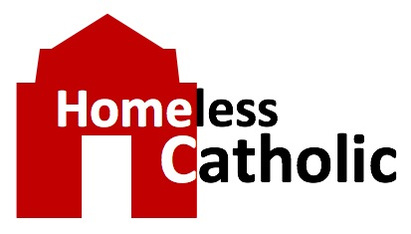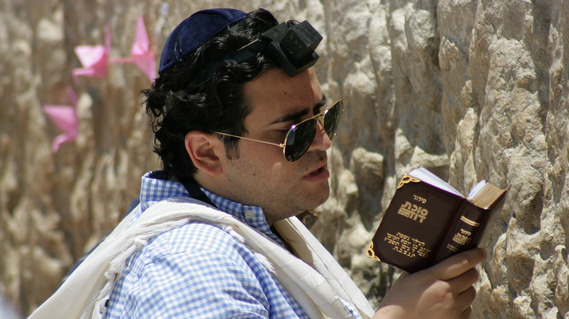Shema prayer on their forehead
The Shema prayer was so important to the Hebrews that they would recite it every morning and night. They took this prayer literally. They wrote the prayer out and placed it in a small box called a Phylactery. The Phylactery was attached to their arm or used it as a pendant on their forehead.
This prayer is as valid today as it was in the days of Moses.
Image by Aleks
Shema prayer on their arms or forehead
By Lou Occhi
https://bible.usccb.org/bible/readings/081223.cfm
Deuteronomy 6:4-13
Matthew 17:14-20
The book of Deuteronomy is the last book of the Torah or Pentateuch. In Hebrew the book was called Debarim, “words,” from its opening phrase, “These are the words that Moses spoke to all Israel . . .” The translation of the Hebrew bible into Greek is called the Septuagint. In the Septuagint 17:18, the word deuteronium means "copy of the law.” From there comes our word Deuteronomy. Basically the book of Deuteronomy covers most of the legal content of the previous four books of the Torah.
In today’s reading, Moses is preparing his people to enter into the Promised Land currently occupied by the Cananites. This reading starts out with the most important prayer of the Israelites, the Shema. Shema is the Hebrew word for Hear.
“Moses says to his people: Hear O Israel! The Lord is our God, the Lord alone. Therefore, you shall love the Lord, Your God, with all your heart, and with all your soul, and with all your strength. Take to heart these words which I enjoin on you today. Drill them into your children. Speak of them at home and abroad, whether you are busy or at rest. Bind them at your wrist as a sign and let them be as a pendant on your forehead. Write them on the doorposts of your houses and on your gates.”
This prayer was so important to them that they would recite it every morning and night. They took this prayer literally. They wrote the prayer out and placed it in a small box called a Phylactery. The Phylactery was attached to their arm or used it as a pendant on their forehead. They also placed it in a small box or tube called a Mezuzah and attached it to the doorpost of their home. When we went to Israel, there was a Mezuzah on every doorpost of every room in the hotels. Here we have a tradition that has continued from the time of Moses to the present day. You older Catholics probably recognize the first few sentences from the Baltimore Catechism.
It seems to me that if this prayer is so important that it has survived for thousands of years, perhaps we should pay a little more attention to it. The first part, “Hear O Israel!” is Moses’ way of saying you better listen up. They had been through forty hard years in the desert. At times they were faithful to God and at other times, not so much. Well, now they are about to enter the promised land and the time for flip flopping on faith is over.
This prayer is as valid today as it was in the days of Moses. The Israelites wandered about for forty years and were finally about to enter the promised land. Aren’t we wandering about in our daily lives, trying to reach our final goal. Like them, we have our good days and bad days. One day we are like the saints and the next we fall into sin. The Israelites were human with strengths and weaknesses just like us.
The next part of the prayer states, “The Lord is our God, the Lord alone.” While the Israelites were in the desert, they wavered between believing in the one true God and making idols out of gold. I am not big on making a God out of gold, but I am distracted from worshipping our God by thinking about what I need to purchase so that my happiness will be fulfilled. TV commercials are masters about leading us in that direction. Buy this product and you will be happy. Take these supplements and you will feel like you did when you were 20. Get these Botox shots and you will look young forever. In essence, we still sometimes fall into chasing other gods. When we find ourselves searching for fulfillment in things, our objective should be to reset and return to our one true God.
The prayer continues, “Therefore, you shall love the Lord, Your God, with all your heart, and with all your soul, and with all your strength.” When I read this, my first question is how do I do that. I can’t go around mumbling “I love you” over and over 24 hours a day. The answer is to build a relationship with God. We do this by getting to know God by reading scripture. Everything we need to know about our God is in scripture. We also need to talk to God. He knows everything already, but he wants to hear it from us.
Sometimes my daughter will tell me what one of our granddaughters did at school. Later on, my granddaughter will tell me the same thing. I love hearing her relate the story even though I already know what she is going to tell me. It also draws us closer together. God is like that. He wants to hear our stories. They can be happy stories or sad stories. It can be a significant event in our lives or it can be about the ice cream we ate at lunch. It doesn’t matter! He loves us beyond all measure and wants to hear our stories. When we build this intimate relationship with God, loving God with all our heart, soul and strength comes naturally.
In the last part of the prayer, Moses tells his people to take these words to heart, drill them into your children, speak them at home and abroad, bind them to your wrist, wear them as pendant on your forehead and write them on your doorpost. Simply stated, imbed these words into your heart and life. We hear the phrase, he wears his faith on his sleeve. I believe that is what he is implying. Without ever telling people you are Christian, do they know it simply by your words or actions? Do you have a crucifix displayed in your house? Are you proud to be Christian and Catholic. I am guessing most of us are already there. It is good to be reminded that when you do these things you are on the right track.
In the last part of today’s reading, Moses tells his people that the Lord will bring them to the land He swore to their fathers, Abraham, Isaac and Jacob. The land will have large cities they did not build, houses filled with goods they did not garner, cisterns they did not dig and olive groves they did not plant. Moses then reminds them not to forget the Lord that brought them out of slavery in Egypt.
We too must remember that everything we have is a gift from God. We should cherish what we have and always give thanks to God. It is also good to remember that our time on earth is limited. When we complete wandering through our lives we will enter into our promised land of eternal life which we did not build, garner or plant.

